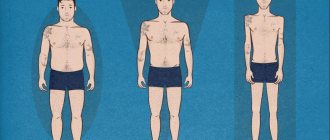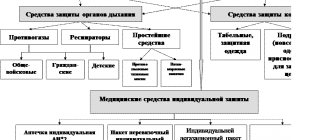Childhood
The excitable, or epileptoid, type of personality accentuation begins to appear at an early age. Children with a predisposition to such behavior from an early age try to subjugate those around them to their will. They want to dictate the rules of the game to other children, oppressing and humiliating those who are weaker in every possible way. It’s the same with adults - as soon as they show weakness, an epileptoid child will immediately try to take over. Therefore, an easy conversation with him will not work, kindness has no value for people with such a character, they only understand the language of power. The epileptoid personality type will bow down to a strong person, snitch on him and inform on his peers.
Epileptoid children also have positive traits - they treat their things very carefully, protect them in every possible way and keep them in good condition. Such a child will never give up his own toys, but will gladly take away others’ ones. Relationships with animals among epileptoids have a pronounced sadistic bias - they constantly mock their pets. Therefore, the idea that an animal given to such a child can teach him to be kind and caring is fundamentally wrong. Most likely, such an interaction will only worsen the epileptoid nature.
Epilepsy, epileptoid and epileptoid psychopathy
These 3 words may seem similar, derived from the same root, but have completely different meanings.
Thus, epilepsy is a disease in which, due to pathological foci of excitation in the brain, a person experiences seizures. Due to a lack of oxygen, disturbances in the functioning of the brain, as well as a certain character, can occur.
Epileptoids are healthy people whose character is dominated by suspiciousness, a tendency to be vindictive, pedantic, dysphoric and outbursts of aggressiveness. But at the same time, they are persistent, careful, patient and have a lot of other positive traits. The emphasis on character does not at all prevent these people from socializing, communicating with others, or realizing themselves. And he needs knowledge of a person’s psychological type in order to better understand himself, and for those around him to build harmonious relationships with him.
Epileptoid psychopathy is a personality disorder in which a person cannot restrain his emotional experiences, showing aggression towards others. In addition, they may be distinguished by egocentrism, obsession, pedantry, irritability and constant dysphoria.
This condition, as well as character accentuation, got its name from the word “epilepsy”, since the character traits of an epileptoid are similar to those conditions that develop in patients with epilepsy.
Causes
The reasons for the development of certain character traits are still unknown, but the development of epileptoid psychopathy, as well as other personality and behavioral disorders, can be triggered by various factors. In most cases, psychopathologies are formed in childhood, and epileptoid psychopathy can be recognized even in a preschooler. Less commonly, such disorders occur in adults or older people.
- Infectious diseases, head injuries, intoxication - any conditions accompanied by intoxication and damage to the nervous system can be dangerous to the brain.
- Heredity - any mental illness in close relatives increases the risk of developing psychopathologies.
- Social and living conditions - unfavorable conditions in which a child lives can also provoke the development of psychopathy.
At older ages, psychopathy can develop due to the use of alcohol, drugs, or head injuries.
Unlike many other accentuations, the manifestations of which can be a variant of the age norm in childhood and gradually disappear, such traits at an early age turn into a well-established pattern of behavior by adolescence. The tendency to develop a character according to the epileptoid type can be determined using various tests.
At first, childhood epileptoidism is extremely attractive to all adults in the family and outside it. These are obedient children who never risk going against the will of their parents, breaking or spoiling anything. They take care of their things, maintain perfect order in everything from an early age, are neat and extremely polite.
Over time, this behavior pattern begins to cause more problems. The epileptoid is stubborn. If by adolescence the owner of such accentuation does not have a clearly formed system of authorities, he turns into a dangerous person who outlines an ideal for himself and follows his favorite doctrine in everything. The characteristics of an epileptoid teenager will necessarily include aggressiveness and intolerance.
By choosing a system of rules and norms, the epileptoid thereby seeks to provide himself with a certain stability in the surrounding world, which calms him down. That is why any encroachment on his familiar environment causes bright outbursts of anger.
In extreme versions of this accentuation, fanatical devotion arises, bordering on psychopathy. Communicating with such people becomes almost impossible due to fixation on one topic and too frequent expression of anger towards dissidents.
It is rare to encounter an epileptoid character in its pure form. Most often, one of two mixed types is encountered during diagnosis:
- Epileptoid-hysteroid. Along with epileptoid features, demonstrative behavior is present. Such a person is not very afraid of public attention; rather, he deliberately seeks it. Hypochondria and irritability are more pronounced in him.
- Schizoid-epileptoid. In this case, the extravagance, unusualness of taste, style, and behavior of the individual are striking. A representative of this type is more secretive and alienated from society. He gets stuck for a long time in the unreal world of art or virtual experiences. To a greater extent, such a person also displays cunning.
It should be remembered that accentuation does not mean psychopathy. If an epileptoid psychopath, due to pronounced mental characteristics, experiences serious difficulties in social adaptation, then a person with such a character is able to coordinate his own behavior. The latter often achieves success in society.
I.
Every day it becomes more and more obvious that, along with the schizoid and cycloid, there is a completely special epileptoid constitution associated with the athletic structure of the body.
Since the appearance of the constitutional scheme of characterological types, which has become classical, with their characteristic habitus, it seemed somehow strange that in the construction of the latter with the corresponding constitution (so to speak!), each separately, only two germinal leaves took part -ectoderm (leptosomes) and endoderm (picnics), while the third, mesodermal, remained, as it were, out of work.
There was something artificial, morphologically suspicious and clinically unjustifiable in this classification of athletes into the group of schizoids, and some kind of gap was felt in this constitutional scheme, similar to the one that was once filled by the brilliant intuition of Mendeleev in the third group of his system of elements.
Now, through the efforts of a number of psychiatrists, this gap in science can be considered filled, and the epileptoid type has taken its place in the scheme of constitutions as type musculaire, with its characteristic hypertrophy of the mesoderm at the expense of the remaining germ layers and the corresponding psychomotor reactivity, which Wallon rightly defines as projective psyche (mentalité projective) or myopsyche.
The situation is completely different with the question of what sexual type such a constitution corresponds to; it, one might say, has not yet been posed, except for the established truth, common to all mentally ill people, that epileptics are characterized by a certain sexual infantility.
Even the psychoanalytic school, which established the characterological features of the psyche characteristic of the so-called. pregenital sadistic-anal eroticism, did not pay attention to the obviously not accidental coincidence of the combination of both, which occurs with amazing consistency in epileptics, which gave me the right, in my work “Epileptic psyche and its sexual prerequisites” (“Journal of Theoretical and Practical Medicine" 1926, vol. II, No. 1-3), suggest that the so-called. the epileptic psyche is, in essence, nothing more than a sublimated product of anal eroticism.
In fact, as I have indicated, it fits well into Freud's characterological triad of “neatness, thrift and stubbornness,” with those additions and comments that were subsequently made, mainly by Jones.
According to Freud, these character traits, so often found in persons with anal eroticism in childhood, are direct and permanent products of the sublimation of this pregenital anal eroticism.
Developing Freud's position that definitive character traits represent not only primary drives that invariably continue to exist, but also newly formed reactions to these drives, Jones points out that the love of order can turn in such people into a stubborn pedantry of duty, that their excessive their slowness and sensitivity to the interference of others makes communication with them very difficult: “It is just as difficult to persuade them to take any action as it is to deviate them from it. They are always preoccupied and spiritually heavy on the rise. Once they manage to master some topic, they endlessly blur into it, not allowing them to interrupt them or insert any word; every attempt in this sense is either ignored or rejected with irritation.”
They are primarily characterized by: a specific feeling of some kind of duty or obligation, therefore, a moral property, forcing them to carry out certain actions only in a certain, “correct” way, overcoming everything inaccessible to reason, and preventing an unbiased and objective attitude; ability to concentrate with a desire for thoroughness and perfection; aversion to anything done halfway; the desire for self-control, which can lead to real passion and exercise in asceticism in order to prove to oneself the strength of one’s self-control; stinginess, narrow nature and pettiness, emphasized sensitivity to all kinds of injustice; chronic irritability, a tendency to anger, resentment and vindictiveness, along with cowardice; hypochondria and inability to enjoy anything pleasant; sensitivity to any interfering and disharmonious elements of the situation, as a result of which their mental balance is unstable, and their mood, in general, is rare and fleeting, easily spoils, so that such people make life difficult not only for those around them, but also for themselves: “they are in constant restless and excited and taking everything too seriously.”
Bearing in mind in particular stubbornness and related phenomena - persistence in pursuing one's own chosen goal, regardless of outside influences, sharply rejecting the interference of others, the belief in doing a certain job better than anyone else, etc. , - according to Jones, “it is not difficult to find similarities between the various character traits described with narcissistic egoism and delusions of grandeur, which indicates to us the contribution that anal eroticism makes to the formation of infantile narcissism.”
But, along with this egoism, characteristic of the pregenital sadistic-anal-erotic stage of development, as a reactive formation against suppressed sadism, it is also characterized by excessive, extremely rare tenderness, moreover, if the lower pregenital organization of such love is manifested in the fact that it Most common among relatively impotent, sexually insensitive people, for whom everything sexual is already impure in advance, then its substrate, thrift and stinginess, as a sublimation of the primitive erotic interest in defecation, have at the same time something to do with hemorrhoids and constipation.
Referring to the Tamil proverb cited by Berkley Hill - “whoever is irritable suffers from hemorrhoids”, and developing Freud’s thought about the symbolic connection of gold, money and paper with excrement, Jones provides an interesting note that among the Germans hemorrhoids are popularly called “golden blood vessels”. residential,” and in stock market parlance someone who is in financial trouble is said to be “constipated.”
It is not difficult to notice that this psyche, characteristic of the anal eroticism of the psychoanalytic school, amazingly reproduces the typical picture of the epileptic psyche of classical psychiatry textbooks. It is not without reason that Jones illustrates his characterization of this psyche, corresponding to the pregenital sadistic-anal-erotic stage of development, with the example of... Napoleon, who, as has been known since the time of Lombroso, was an epileptic.
Symptoms at different stages of growing up
The disease manifests itself in different ways - it all depends on age. If you know these nuances, you can prevent further progression of psychopathy. And the sooner you start treatment, the better.
As you get older, epileptic psychosis manifests itself as follows:
- Epileptoid child. A child with this disorder may cry for a very long time, even for several hours, and it is impossible to calm him down. Such children want to be a tyrant in games, dictating the rules. They love to surreptitiously torment the younger ones and those who cannot give them back, and abuse their pets. These are “difficult children”, fighters who do not get along well in a children's group. In elementary school, children with such psychopathy are distinguished by “hypersocial” traits: excessive accuracy when filling out copybooks and notebooks and careful handling of their belongings.
- Epileptoid teenager. The most highly excitable psychopathy manifests itself at the time of puberty. At this age, sick teenagers are characterized by dysphoria - anger, apathy, and a sullen appearance. Teenagers themselves look for reasons to incite conflict. Even a slight restriction of freedom can lead to an attack of aggression. Such teenagers are characterized by harsh language and cruelty, and sometimes a tendency to self-harm. Such teenagers often become pyromaniacs and dromomaniacs.
- Adult psychotic. By the time they are growing up, psychopaths begin to exhibit antisocial and illegal behavior, and practice alcohol abuse or debauchery. Some patients by the age of 30 can eventually learn to control their outbursts of anger - then they interact with society without problems. The majority ends up in colonies and prisons, where they play the role of informal negative leaders.
There are character traits that define epileptoids, and in men and women with epileptoid psychopathy, these same traits seem to be excessively expressed, so that their behavior seems abnormal, out of the generally accepted framework.
- Affective outbursts are one of the most characteristic signs. Attacks of anger appear, as it seems to others, out of the blue, but, in fact, epileptoids “save up” their emotions for a very long time and “explode” at a certain moment. Since most of the time such a person is in a state of dysphoria, it is almost impossible to guess when and what will trigger the next outbreak. In a fit of anger, people have poor control over their emotions, can behave aggressively and are not always able to stop in time.
- Dysphoria – decreased mood, melancholy, anger, increased sensitivity to minor irritations. Most of the time the epileptoid is in this state. He seems to be looking for (and finding) reasons to be offended, angry or upset.
- Viscosity of thinking and behavior - it is very difficult for an epileptoid to quickly change his behavior or way of thinking. They love order, tend to “put everything in order” and cannot quickly switch to another object or action.
- Cyclicality – changes in mood, periods of dysphoria and aggression constantly replace each other. With pathology, even a certain “regime” is possible, for example, in the morning the mood is normal, by lunchtime it worsens, and in the evening an explosion occurs.
- Touchiness, suspiciousness - such people take everything personally and notice every little thing if it has anything to do with them. Another side of such self-centeredness is the almost complete lack of empathy and lack of desire to pay attention to the feelings of others.
- Pedantry – a penchant for order and the desire to put everything in its place can turn into pedantry.
The child is an epileptoid
The first features of epiletoid can be noticed at the age of 2 years and older. The child is stubborn, unable to restrain his desires and expect something. He can cry for hours until he gets what he wants and it is very difficult to calm him down.
In preschool age, such children have difficulty coping with outbursts of aggression, may show cruelty towards animals, other children or adults, and try to manipulate peers.
Epileptoid schoolchildren are characterized by a tendency to pedantry, rigidity of thinking, and inability to quickly change their style of behavior.
In adolescence, the epileptoid is characterized by malice, irritability, and mood swings from melancholy and apathy to aggression. And also a complete lack of pity and empathy towards others.
Epileptoid psychopathy
The name "epileptoid" is given to this type of psychopathy because of the similarity with some personality changes that occur in patients with epilepsy.
The main character traits of epileptoid psychopaths are increased excitability combined with explosiveness, malice, rancor, vindictiveness, and a tendency to show violent reactions with aggression in response to minor external stimuli.
Manifestations of psychopathy are most often detected in childhood. From an early age, such children can cry and sob for a long time for no reason, and it is impossible to calm them down; even shouting does not work - they become embittered, beat their arms and legs on anything, and can hit both their mother and their peers.
Since childhood, such children are periodically gloomy, gloomy, and unreasonably embittered. They torment their loved ones and other children with their whims and their unmotivated malice.
They exhibit sadistic tendencies early on, which become even more pronounced with age. They torture stray animals, horrifying adults with their cruelty, and can harm domestic animals and birds “just for fun,” “just to look.” They secretly mock other, weaker children who cannot fight back, trying so that adults do not see this.
From childhood, epileptoids show authority and despotism. In a group, epileptoids claim the role of “leader” and “master”, demand unconditional submission to themselves, establish their own rules in games, dictate to everyone what they should do, but always in their own favor.
The behavior of the epileptoid with adults manifests disobedience with hatred, anger and a tendency to destructive actions and pugnacity at the slightest hint of their “independence” and demand for submission.
During school years, epileptoids show adherence to rules, increased accuracy and meticulousness in everything, and this desire for external accuracy becomes an end in itself and is carried out to the detriment of learning.
The most prominent feature is the presence of frequent, apparently unprovoked periods of gloomy, gloomy, angry-sad or angry-irritable mood, which are called dysphoria (the term comes from the Greek “dysphoria” - irritation, annoyance).
During the period of dysphoria, irritation steadily builds up and the epileptotic psychopath is looking for someone to take out the accumulated evil on. This malice has nothing to do with the behavior of others, it comes from within and is the most characteristic emotional manifestation of both epileptoid psychopathy and epilepsy.
The desire of others to prevent dysphoria, their goodwill, and willingness to meet the slightest desires of the epileptoid are not successful.
And even on the contrary, in some cases, the manifestation of the participation and kindness of others embitters the epileptoid teenager even more, since in these cases he cannot find in their behavior the slightest reason to take out his anger on them, and it reaches its highest intensity. This state is similar to the rupture of a steam boiler, which first seethes inside, gradually boils, and when the pressure reaches its highest level, it explodes.
In the end, the epileptoid finds some reason to find fault. It can be completely random and plays the role of the “last straw” that overflows the cup of patience. Or the reason is the very manifestation of sympathy, and the epileptoid attacks the person trying to console or calm him down, shouting that he is tired of these pesterings. A violent emotional release occurs. It is distinguished not only by its great strength, but also by its duration.
It is even possible to experience motor agitation with the destruction of objects, threats towards others and aggressiveness directed at anyone, even the first innocent person they come across, regardless of what consequences this will have for this person and for the psychopath himself.
An epileptoid psychopath cannot cool down and calm down for a long time. In this way, emotional discharges in epileptoid psychopathy differ from outbursts in other types of psychopathy, where a person quickly flares up, but cools down just as quickly if his attention is diverted or the reason that caused the anger is eliminated.
Dysphoria is a long-term condition; it can last for several hours or several days.
The epileptoid psychopath himself can neither prevent an attack of dysphoria nor control himself during such an attack. Epileptoids themselves admit that such conditions arise without any external cause - “it comes over me.”
Being in a state of dysphoria, the epileptoid can choose a complete stranger or any member of the team as an object to discharge his anger. Therefore, episodes of anger and aggressiveness can occur in any public place, at home, at school, in the company of peers, and at work.
The ideal condition for releasing anger in an epileptoid is a fight situation. Sometimes they deliberately provoke her in the company of peers, and when they become adults, in an asocial, criminal company.
They find fault with others over trifles, deliberately insulting and humiliating them, and if they receive rudeness in response, they find complete satisfaction by starting a fight. In a fight, they are merciless and cruel, they beat until they bleed, and they become even more enraged and simply “go wild” if they encounter resistance, they can kick a fallen and no longer resisting opponent with their feet, with any heavy object, causing him serious bodily harm and do not even stop before the murder. In this state, they make a terrible impression - the face is filled with blood, the eyes are “mad,” sweat appears.
In forensic psychiatric practice, such unmotivated and wildly cruel murders are most often committed by epileptoids.
Therefore, social decompensation in epileptoid psychopaths occurs very early, sometimes even in adolescence. They often violate the law associated with violence and their aggressiveness. Many of them have criminal records throughout their lives, mostly for the same crimes.
Moreover, their unbridled rage and cruelty are feared by their peers in juvenile colonies, and by people much older than them, and even in the criminal environment in which they prefer to be after their first conviction, since it is here that they can realize their antisocial tendencies and bouts of aggression.
In adolescence, a psychopath - an epileptoid - is a tyrant and dictator in the family. He can mercilessly beat his younger brother and sister for the slightest infractions if he is not in a good mood, and during periods of dysphoria he gets it from his parents, older brother or sister, and grandparents.
At the same time, he always considers himself right, motivating his behavior by the fact that he was “pushed”, and as “compensation” he may demand from his parents some concessions, permission to do whatever he wants, or money for his whims.
Sometimes dysphoria may not be so pronounced, but manifest itself as idleness, apathy, sullenness and a frown.
But violent outbursts in epileptoid psychopaths arise not only as a result of dysphoria, but also as a result of conflicts, which are quite frequent in them due to their character traits. The reasons for this are most often insignificant and are associated with infringement of the interests of the epileptoid or a trivial offense. He can pounce and hit an elderly person hard if he made some kind of remark to him, knock down a child who stuck his tongue out at him, severely beat a peer who dared to mock him.
And here the epileptoid shows the same indomitable rage as when discharging dysphoria. It is impossible to stop him with words, it is even difficult to drag him away from the victim, and he can also hit the one who is trying to resist him in the beating.
In this state, his speech consists of obscene shouts, reflecting unbridled anger and threats both towards the victim and towards the victim’s defender. He beats with sadistic pleasure, trying to break the victim's face until it bleeds, and hit him in the groin. He doesn't care whether the opponent in front of him is weak or strong. He equally brutally beats a defenseless person who is unable to resist him, and attacks a physically stronger and older person.
Conflicts with parents can lead to a complete break with them; in such cases, the epileptoid becomes extremely vindictive towards relatives and can commit various offenses “to spite” the parents.
When quarreling with parents, an epileptoid teenager can deliberately “suck up” to his grandparents, and they usually pamper them, indulge them in everything, and take the side of their grandson or granddaughter in quarrels with their parents.
Epileptoids are characterized by a passion for hoarding; they carefully protect what they consider theirs from other children in the family and their peers. Even in collecting, they are more attracted by the material value of what they have accumulated. They prefer to collect things that they can later sell at a profit. The passion for getting rich can last a lifetime.
The appearance of some epileptoids has characteristic features - a strong, squat figure, a massive torso with relatively short arms and legs, a short neck, and a heavy lower jaw. But these features are not common to everyone. The movements of most epileptoids feel heavy and slow.
Many of them have been distinguished by physical strength since childhood or develop it by playing sports. Epileptoids (not only boys, but also girls) prefer power sports or combat types of defense and attack. They do not like group sports games if they cannot take a leading position in the team.
All mental processes of epileptoids are characterized by pathological inertia, slowness, stiffness, and difficulty switching. All this is called viscosity.
Viscosity manifests itself in thinking (viscous thinking of an epileptoid and an epileptic) and in emotions (stability, inability to switch - rigidity of emotions). Sometimes they talk about the stickiness, the “viscosity” of mental processes.
The inertia and stagnation of all processes leave an imprint on the entire psyche, emotions and movements of the epileptoid. Therefore, negative emotions, having arisen, continue for a long time, and the epileptoid is not able to switch.
To a certain extent, these mental characteristics are associated with the special rancor and vindictiveness of epileptoids. They are unable to forget the slightest insult caused to them, usually minor, or what they consider offensive to themselves.
Those minor hassles and quarrels that people have, and which any normal person can forgive and forget, an epileptoid never forgives. If he does not have the opportunity to immediately react and take revenge on the “offender,” he will for a long time nurture and cherish plans for revenge in his soul, and at the first opportunity he will take cruel revenge, moreover, the strength of his anger and his cruelty cannot be compared with the insignificance of what was done to him "grievances
That is why many epileptoids, having become adults, prefer an asocial and criminal environment, where they can immediately manifest their response in the form of immediate and merciless reprisals. But even inveterate criminals who know him well try not to get involved with the epileptoid, since in a fight he does not spare either himself or his opponent. Only a beginner, if he has not been warned in advance, or the same epileptoid striving for leadership, can accidentally show insubordination and inflict a “deadly offense” on an epileptoid.
The authority and despotism of epileptoids, the desire for leadership, dictatorship with demands for unconditional obedience to “commands” are manifested in epileptoids already in childhood and adolescence. In a teenage company, the epileptoid achieves obedience and submission to his “orders” with the help of fists and threats of physical violence. Often the epileptoid prefers for his purposes a company of younger and weaker people who are unable to resist him.
Even if he comes to a group that already has its own leader, he immediately claims a dominant position, enters into a fight with the former leader of the company and, in a fight, most often defeats him and overthrows him.
Some of them are distinguished by great physical strength, some are not, but it’s not even their strength that matters; the epileptoid inspires fear in his peers with his ruthlessness, cruelty and unbridled rage. In a group, the epileptoid immediately establishes his own rules and procedures, which are always beneficial to him personally.
In adolescence, another feature of epileptoid psychopaths manifests itself - ingratiating himself with people on whom he depends and whom he considers “superiors.” The epileptoid can be flattering and obsequious, curry favor with the teacher, teachers, head teacher, school director or coach in his sports section. At first, he can even give the impression of being neat, diligent and efficient.
The epileptoid’s servility to the “superiors” and strict fulfillment of all his demands is aimed at acquiring some kind of power over his peers and “commanding” or receiving support and benefiting. If an epileptoid is appointed head of the class, captain of a sports team, then all other peers groan from his dictatorial habits, and this leads to violent conflicts.
Epileptoids feel very good in conditions of imprisonment - by pleasing and complying with the demands of their superiors in everything, the epileptoid achieves that he is appointed commander of a detachment or head of a barracks, which gives him considerable personal benefit and allows him to show his desire for power.
But in a state of dysphoria, not a trace remains of the former obsequiousness to the “boss.” An epileptoid psychopath can suddenly become rude, burst into vulgar abuse, and throw the first object that comes to hand at the person with whom he was fawning just yesterday. Therefore they are often punished. In places of detention, outraged by their authority and cruelty, other convicts can start a riot and at night together beat the hated elder.
Epileptoids are often expelled from school or kicked out of the sports section. But this, as a rule, does not teach them anything. The same thing is repeated in another team. Epileptoids rarely have the opportunity to continue their education, go to college, and even finish high school normally.
Because of their uncontrollable behavior, many have to leave school for vocational schools, where teenagers with severe mental disorders usually study, and the concept of rules of behavior and discipline there is very loose.
The place of “least resistance,” a blow to which most often leads to decompensation of the epileptoid, is any, even minor, conflict that the epileptoid himself regards as an infringement of his interests. When the opportunity to express his despotic power and dictatorial habits is limited, the epileptoid always reacts in the same way - with a reaction of violent anger and aggression.
Epileptoids are realists. They do not look far into the future, do not like dreams and empty fantasies, and live in the reality of today. Epileptoids prefer material wealth to high moral aspirations. They love money and what money can buy, they love to eat tasty and satisfying food, and they sleep soundly.
Most epileptoids experience a tense state of the instinctive sphere and an anomaly of drives. Sexual attraction is very intense.
Clinical example.
Nikolai F. 18 years old, secondary education, worker. Not married. I was referred by the military registration and enlistment office for an inpatient examination.
The father is an alcoholic, the mother is a primitive, submissive, silent woman who meekly tolerates her husband’s drunken antics. There are two more younger children in the family.
The mother characterizes Nikolai as angry, vindictive, cruel, and vindictive. Since childhood, he did not like to obey anyone, he strived to lead over his peers. Those who did not obey were brutally beaten, although he was not particularly strong. His peers teased him behind his back as a “freak” and “big-headed,” since he actually has a disproportionately large head for his small stature with protruding large ears. One ear and nose were mutilated in a fight, the nose was twisted to the side. But they were afraid to say these nicknames to their faces, since he could beat anyone, even those who were physically stronger.
He bullied his brother and sister, beat them both. He “raised” them according to his own methods - he is the “master”, and they are his “servants”. His briefcase was carried to and from school by his younger brother, and he ran on all of Nikolai’s errands, begging for him cigarettes from passers-by and money. My sister did the same. For the slightest disobedience or if they brought him less money than he expected, he could give him a slap in the face. His mother was afraid of him and did not interfere.
Sometimes he became “angry as hell” for no reason, he could kick away a brother, sister or any child who got in his way, he clung to his mother and called her names. He usually took out his anger on the younger children.
He has been very vindictive since childhood. At the age of 12, while playing football with the boys, I accidentally hit a neighbor from the 1st floor with a ball and broke the glass. She ran out onto the balcony and cursed at Nikolai, calling him a “geek” and a “bastard.” In response, he threw a piece of brick at her, she barely had time to dodge, and the brick also hit the glass, breaking the second window. The neighbor called her husband and he ran out into the yard. Nikolai greeted him with an impudent grin, spreading his legs wide and swinging another piece of brick in his hand, thereby demonstrating to his friends “fearlessness” and readiness to fight back a grown man. But he was not afraid of the impudent teenager, and although Nikolai managed to throw a brick at him, he knocked him down with a step, and then pulled him by the ear, thereby humiliating him in front of other teenagers. They were very pleased that at least someone managed to teach Nikolai, who was claiming to be the leader, a lesson.
Nikolai harbored a grudge and decided to take revenge. He was afraid to get involved with his neighbor’s husband, but one day he caught their cat, which often walked in the yard, getting out through the window, and tied it by its hind legs to the railing of their balcony, covering its face with tape. It was late in the evening and the owners did not immediately miss their beloved cat. Usually the cat came and went on its own. Only in the morning did a neighbor discover her hanging and squirming in the ropes entangling her. Fortunately, the poor animal was not injured. The enraged neighbor went to Nikolai’s house, but he was at school. His half-drunk father was at home, to whom the neighbor made his threats, promising to “break all the bones” of both “his son, a moral monster and a sadist,” and his “drunk dad.” He heeded and met Nikolai with a belt. Although he tried to dodge and his father also got it from him, he was beaten mercilessly. Since then, Nikolai harbored a grudge against his father, played dirty tricks on him at every opportunity, and when he grew up, he began to beat him.
From the age of 13, Nikolai began to drink. His brother and sister got money for alcohol by begging on the street. When intoxicated, he became even angrier and more aggressive, constantly starting fights if something was not to his liking. More than once he was severely beaten, but his opponents suffered too. From this age he is registered in the children's room of the police.
Sexual desire arose at age 12. From the same age she constantly masturbates, sometimes up to 3-5 times a day. Sexual life since the age of 13 - a 14-year-old girl appeared in their yard company, who recently moved into their house, on the very first evening they got her drunk and raped her in turns. But she didn’t tell her parents anything and subsequently spent all her evenings in their company, cohabiting with everyone who wanted to. Nikolai was her most frequent partner, sometimes he had 2-3 sexual intercourse with her per day.
They usually spent time in the vacant lot behind their house, and Nikolai would take his partner behind the nearest bushes and, without much ceremony, perform sexual intercourse. When she once objected, saying that she was on her period, he punched her in the face, and the entire left side of her face became covered with a huge bruise. Since then, she was terribly afraid of him and never refused.
He had other sexual partners, whom he treated just as unceremoniously.
After 8th grade, he was recommended to go to a vocational school, since he barely completed the school curriculum. He didn’t want to study and went to work. I changed several jobs because I had conflicts everywhere. Once he hit a master who reprimanded him, he fell and was hit hard. They even wanted to open a criminal case, but he was still a minor, and they did not contact him, telling him to immediately take the documents and get out.
At the age of 17, he forced his sister’s 12-year-old friend into cohabitation. She came to his sister to do her homework, and he dragged her into another room, pulled off her panties, threw her on the floor and raped her. The girl screamed, scratched and hit him with her fists, but could not cope with him. Nikolai’s sister was so afraid of him that she sat in another room, afraid to leave. The girl ran home crying, but didn’t tell her parents either.
From then on, he began to watch for her near the entrance, he could drag her into the entrance to the upper landing and force her to have intercourse, saying in a threatening tone that it was better for her to agree voluntarily or he would mutilate her. She was afraid of him and was forced to remain silent. Sometimes he forced her to have intercourse 2-3 times a day or forced her to perform fellatio. The frightened girl turned blue.
He did not want to serve in the Army, and during the medical examination at the military registration and enlistment office, he declared that he was an alcoholic and “a psycho since childhood” in order to avoid conscription.
The fact that he had previously been registered in the children's room of the police, his behavior and minor offenses were known, and he was sent to a psychiatric hospital for examination.
He was, of course, exempted from military service for obvious reasons. Even strict army discipline will not be able to accustom an epileptoid psychopath to obedience, and he certainly cannot be trusted with weapons.
The love of an epileptoid is combined with severe jealousy of the object of love, and the reasons for jealousy may be trivial, but, as always with an epileptoid, jealousy is accompanied by a violent emotional reaction with threats both to the rival (most often imaginary) and to the object of love. An epileptoid can brutally beat his chosen one at the slightest doubt of her fidelity. Epileptoids never forgive betrayals (imaginary or obvious), regarding them as betrayal.
Marriage to an epileptoid is a heavy burden for his wife. In the family, he is a tyrant and despot, seeking unquestioning obedience from all family members. At the slightest insubordination, a reaction of malice and anger arises. In a state of dysphoria, he becomes scary, his aggression is directed at anyone who comes to hand, and at inanimate objects. He can break all the dishes, break furniture, and throw a heavy object at expensive equipment. In anger, he is unable to spare either his wife or children. Even after a divorce, an epileptoid can keep an eye on his ex-wife, and if he sees her with someone else, he can beat both of them.
In satisfying sexual desire there are elements of sadomasochism. In adolescence, the epileptoid takes pleasure in cruelly torturing animals, as well as mocking weaker peers or secretly beating children or his own younger brother or sister.
The epileptoid also brings sensual pleasure from inflicting pain on himself - they stab, bite and cut their body, burn themselves with a cigarette. This is not always accompanied by sexual arousal and feelings of orgasm, but it gives special pleasure, which is why epileptoids often practice such masochistic methods of obtaining pleasure.
Yu.A. Strogonov, S.D. Ozeretskovsky also describe this option of obtaining sensual pleasure close to orgasm, when adolescents - epileptoids have a pathological passion for self-strangulation - they tighten the noose around the neck until consciousness turns off and mild convulsions appear, and during this moment of pleasure.
Having become an adult, the sadistic epileptoid gets pleasure from causing pain to his sexual partner. Moreover, unlike many sadists who use sophisticated methods of inflicting pain, the epileptoid uses more primitive and crude methods, and the victim’s tears and pleas to stop the beating “turn on” him even more, giving him a feeling of his limitless power over another person, he “enters into rage,” and can cause significant harm to his partner.
In closed institutions (in an orphanage, boarding school, camp, colony for minors or adult criminals, in prison), where people are of the same sex, many epileptoids satisfy their sexual desire in a homosexual way.
Both men and women epileptoids always play an active role in homosexual relationships, combining homosexuality with gross perversions. They get special pleasure from humiliating their sexual partner and achieving complete submission to themselves.
Subsequently, some epileptoids prefer homosexual relationships or combine normal and homosexual ones.
In adolescence, some epileptoids also experience such impulse disorders as pyromania (the tendency to set fires) and dromomania (the tendency to wander.
In the first case, the teenager gradually develops a desire to commit arson, he imagines how fire will lick the walls of the house and the roof of the building, and having committed arson, he becomes an active spectator, showing fascination with the fire, interested in the consequences and what damage will be caused as a result of the fire. Often arson is associated with a state of dysphoria, and when his desire is realized, the teenager seems to calm down, and his emotional stress subsides.
And with dromomania, the epileptoid’s escape from home is caused not so much by a desire for long-distance travel, but rather by a protest reaction in response to the infringement of his rights, and is also associated with dysphoria - in this case, the escape occurs without any external reason, the epileptoid can travel far, and when he escapes again, he uses the same route. During such escapes, the epileptoid is tense, pale, and can commit antisocial and criminal actions.
The disorder of impulses characteristic of epileptoids also manifests itself in relationships with alcohol. In some cases, the craving for alcohol appears after the first drinking.
Many epileptoids begin to abuse alcoholic beverages already in adolescence. Teenagers have little tolerance for alcohol, so they usually prefer weak alcoholic drinks to strong ones. But epileptoids from the very beginning prefer vodka rather than wine or beer, as this causes more severe intoxication.
A pleasant, complacent state when intoxicated is not typical for epileptoids. From the very beginning, there is a need to drink until you pass out. In a state of intoxication, epileptoids become uncontrollable.
Alcohol can provoke dysphoria, but unlike dysphoria in a sober state, when irritation and anger accumulate for a long time, and then the epiletoid “explodes,” dysphoria that occurs while intoxicated develops much faster, and discharge occurs immediately.
In addition, when intoxicated, anger can easily be provoked by any minor conflict. Excitability in drunken epileptoids intensifies even more, and any casually spoken word from a drinking companion, any gesture that the epileptoid can interpret as disdainful or insulting, or disobedience to his order, can cause an outbreak of anger and aggressiveness.
Epileptoids often fight while drunk. Sometimes they themselves don’t remember what caused such a violent outburst of their anger, but nevertheless, they never admit that they were wrong and the excessiveness of their reaction, blaming the object of their anger for everything - “It’s my own fault”, “There was no point in running into trouble”, - etc.
Clinical example.
Oleg L. 14 years old.
From the medical history: The father is a high-ranking military man, domineering, despotic, and does not tolerate objections. a high-ranking military man, Mother is a housewife, a quiet, timid woman, subordinate to her father in everything. There are no other children in the family.
Early development is timely, physically strong, taller and stronger than many of his peers.
By nature - cruel, vengeful, vindictive. Tyrannized his mother. Sometimes, for no apparent reason, there were periods of rootless anger, when he found fault with his mother (he was afraid of his father, since he often punished him with a belt), everything was “wrong” for him, and when she timidly asked what happened, what he was upset, could explode “like gunpowder,” stomped his feet, called her obscene names, demanded that she “not pester him with her baby talk,” flew into a rage, could break something, break dishes.
In one of these attacks of dysphoria, not knowing where to vent his anger, he clung to his mother all morning, and in response to some phrase from her, he grabbed a boiling kettle from the stove and threw it at his mother. She received severe burns, but hid the true cause from her father, saying that she herself had been scalded by boiling water.
He did not obey his mother at all, he was afraid only of his father. She generally stopped asking her son about anything, because in response he was rude or angry, his face turned red, his eyes became “crazy,” he declared that he hated her, she annoyed him with her “cackling,” and if she started crying, he became even more angry. I could have hit more. In a state of dysphoria, he beat his mother more than once, striking randomly anywhere, but she just cried, asked him for forgiveness and covered her face with her hands. But she hid all this from her father, and if there was a bruise on her face, she said that on the street the child accidentally hit her with a stone or that she allegedly hit herself. The mother adores her son and forgives him everything. My father is always away from home, comes home from work late, and often goes on business trips.
He was first admitted to a psychiatric hospital at the age of 12, although he has been drinking regularly since the age of 10. The mother, being at home all day, did not even suspect about it. His father was the first to know about his son’s drunkenness, seeing him near a store in the company of his peers, barely able to stand on his feet. Several times he tried to brutally flog his son, but it did not bring results. In the morning, the boy allegedly left with his briefcase for school and disappeared somewhere until late at night, coming home completely drunk. Or his father went looking for him in all the “hot spots” of his area and found him either in some basement, or in a beer bar with adult drinking buddies, or somewhere else.
Giving up on going to school, the father began to lock his son in his room, but he climbed out the window, moved to the balcony of the neighboring apartment when the neighbors were not at home and ran away again.
The father struggled for a long time, not daring to put his son in a psychiatric hospital for fear that this would become known in his service, but in the end he decided to do it.
During the examination, the boy revealed all the symptoms of alcoholism, and in addition, he tried all the drugs that he managed to get. He was hospitalized in a department for the treatment of drug addiction patients. In the department, he constantly hung around adult drug addicts, smoked with them in the toilet, listened with delight to the stories of drug addicts (many of them had criminal records), begged them for any pills and swallowed everything, even medications prescribed to other patients.
After discharge, everything happened again. Although his father tried to lock him at home, when his father left for work, he forced his mother to open the door, threatening that he would “beat her” and again ran away from home for a long time. He was “caught” and again placed in a psychiatric hospital. For several years he was a regular patient in our department, there is no further information about him, most likely he ended up in a colony.
Sometimes, in a state of intoxication, epileptoid psychopaths commit acts or actions that occupy a fairly long period of time, but which subsequently they cannot remember anything about and at least somehow explain their behavior - “I myself don’t understand what came over me.”
These behaviors are not necessarily aggressive or destructive. Sometimes they look strange and inexplicable or are regarded by others as bravado or protest - a person can climb, risking his life, onto the roof of a house or a crane for some unknown purpose, strip naked and go out into the street, or make quite long journeys, get into the first available vehicle , on the train and go somewhere. Having sobered up, the epileptoid himself cannot understand how he ended up in an unfamiliar place. Such conditions in epileptoids are associated with impaired consciousness.
With epileptoid psychopathy, suicide attempts are possible. In adult epileptoids, this is more often associated with a state of dysphoria, and in adolescents - as an act of revenge and the desire to cause trouble to “offenders”, for example, parents or a teacher, if he was punished, deprived of privileges or offended.
Epileptoid psychopathy is possible not in its pure form, but in combination with some features characteristic of other types of psychopathy.
In the epileptoid-hysteroid variant, the main epileptoid features are combined with a tendency to demonstrative behavior, pretentiousness, increased self-esteem, and egocentrism.
In the epileptoid-unstable variant, epileptoid features are combined with a desire for an idle lifestyle at the expense of others, a lack of emotional attachments and plans for the future. There may be other mixed types of psychopathy.
Epileptoid psychopathy is one of the most difficult options for social adaptation (adaptation). Epileptoids love only themselves, power and material expressions of social well-being. Their decompensation can occur anywhere - in the family, at school, at work. More than with other types of psychopathy, a tendency towards asociality and criminal acts associated with violence is revealed.
This is one of the most unfavorable variants of psychopathy, both for the person himself due to frequent decompensation and social maladjustment, and for those around him, for whom the epileptoid is a cruel tyrant and despot who makes his loved ones suffer without worrying at all about how they feel.
Source: https://studopedia.ru/10_103263_epileptoidniy-tip-psihopatii.html
Treatment
The epileptoid type of character is a personality trait and cannot be treated. If a person himself wants to get rid of some manifestations of character, psychotherapy, special techniques or self-analysis can help.
With epileptoid psychopathy, people rarely realize their problems and want to change something in their lives. With severe outbursts of aggression and dysphoria, sedatives, antidepressants, behavior correctors and other drugs can help. But they can only be taken after examination by a specialist, since similar symptoms occur in other diseases - epilepsy, schizophrenia or dissociative disorder.
WE RECOMMEND:
- How to keep your husband in the family?
- Is the fear of losing a loved one a phobia or a common fear?
- How to restore and maintain mental (mental or spiritual) health
- Psychosomatics of pain in the neck, back, head
Pathogenesis and etiology of the disorder
A clear cause for the disorder has not been identified, but according to some theories, it may be caused by the following factors:
- The surrounding society. Most epileptoids grew up in an environment where aggressive behavior combined with violence is considered the norm. As children grow older, they acquire the same traits as adults.
- Heredity. The etiology of epileptoid psychopathy may involve a factor of genetic predisposition, as a result of which the disease is transmitted to children from the mother or father.
- Brain chemistry. Serotonin (the pleasure hormone that prevents depression) functions in such patients, perhaps differently than in healthy people.
- Birth injuries and head injuries cause the development of epileptoid psychosis as a compensatory reaction.
- Infectious diseases of the central nervous system.
The epileptoid type of character accentuation can also develop due to the following reasons:
- Sexual or physical abuse. People who have experienced such humiliation have an increased chance of developing this psychopathy.
- Other types of mental disorders. People with any other antisocial disorder, including disruptive behavior, are also at risk.
Epileptoid personality type - 9 facets of character
Patients diagnosed with epileptic psychosis have the following features that negatively affect their standard of living:
- Violation of relationships with members of society. Epileptoids are perceived by the people around them as always gloomy, aggressive, intolerant people. These are egocentrics who do not take into account the opinions of others. They are despotic and very demanding of others. They can initiate verbal conflicts and use physical force. This leads to frequent job changes, poor performance in educational institutions, road accidents, and problems with law enforcement agencies.
- Difficulty controlling mood. Anxiety and depression are always inherent in patients with this type of psychopathy. In movements and thinking, a tendency towards dysphoria is manifested.
- Problems with alcohol and drug use. They go almost hand in hand with explosive psychopathy. Epileptoids do not drink a little to lift their mood, they feel the need to get drunk until they lose their memory.
- Among health problems, diseases of the cardiovascular system, gastrointestinal tract, and metabolism predominate.
- Deliberate self-mutilation sometimes occurs in epileptoids with the most severe form of psychopathy, characterized by frequent outbursts of aggression.
- Psychosis also affects sexual relationships. During sexual intercourse, an epileptoid psychopath may adhere to sadism or masochism. Some of them choose homosexual or bisexual relationships.
- In a family, they are always tyrants, forcing all members to obey them. Such a person plays the role of a despot, maintaining his status in the family with the help of force. Fights and conflicts at home become commonplace. All his close and dear people are unhappy due to the actions of the epileptoid. He does not hesitate to punish children with physical methods.
- “Hypersocial” traits: pedantry, accuracy, adherence to traditions, exaggerated desire for justice.
- People of this personality type often, but not always, look the part: stocky, strong figure, massive neck and torso, large lower jaw, short arms and legs.
In the epileptoid personality, anger and irritability coexist with accuracy, precision, love of order, and frugality.
The character traits and external qualities of such a person are determined by how his brain works.
Epileptoid personality type: Excitable accentuation of a person’s character
An epileptoid personality type is a person with pronounced impulsiveness, poor self-control, often conflict-ridden and aggressive.
Often, an individual who has an excitable accentuation of character (epileptoid type) has a choleric temperament and in relationships acts first and thinks later.
In an epileptoid, excitation in the cerebral cortex prevails over inhibition, its psychological defense is “replacement” (“displacement”)
Today you will learn how to correct a person’s excitable character, tame and take control of his epileptoid psycho-type.
Excitable character: change in epileptoid accentuation
An excitable character is characterized by insufficient controllability, weakening control over drives and impulses are combined in people of this type with the power of physiological drives.
Character Accentuation Test A person with epileptoid character accentuation is characterized by increased impulsiveness, instinctiveness, rudeness, tediousness, gloominess, anger, a tendency to rudeness and abuse, to friction and conflicts, in which he himself is an active, provoking party.
An individual with a stuck character is irritable, quick-tempered, often changes jobs, and is difficult to get along with in a team. He has low contact in communication, slowness of verbal and non-verbal reactions, and heaviness of actions.
For the epileptoid type, no work becomes attractive; he works only when necessary, and shows the same reluctance to learn.
The epileptoid is indifferent to the future, lives entirely in the present, wanting to extract a lot of entertainment from it. Increased impulsiveness or the resulting arousal reaction is difficult to suppress and can be dangerous to others. He can be domineering, choosing the weakest for communication.
Epileptoid character, correction of excitable accentuation
Psychotraining exercises for a person with an excitable character
1) Fulfiller of desires You, as an epileptoid personality type, are accustomed to fulfilling all your desires, and now try to fulfill the desires of your loved ones, loved ones, your acquaintances, classmates, employees, clients.
Try to live in accordance with the requirements that they make, not you.
To begin with, choose the person most pleasant for you and try to fulfill all his wishes (of course, within reason) without any conditions on your part.
If it doesn’t work out, then in a day or two, make another attempt to fulfill the wishes of another person close to you.
If this works, gradually increase the circle of people whose wishes you will fulfill.
2) Slave During a business conversation or just a conversation, try to periodically transfer the initiative to your interlocutor, for example, asking him: “What do you think? What do you think about this issue?
It’s even better if you talk about what is interesting and what worries your interlocutor.
Do not make any comments about the manner of communication of your interlocutor; on the contrary, praise him. But this must be done without irony, kindly.
3) Contemplative Learn to treat everything that happens to you like a gray-haired eastern sage, contemplatively, i.e., before reacting to the words or actions of loved ones, or just people around you, ask yourself: “What would you do?” is there a wise man in my place? What would he say and do? Make a decision and act only after a few minutes of such calm, contemplative reflection.
By completing this program of psychocorrection for the excitable nature of the epileptoid type, you will learn to level out the shortcomings of your personality, become more accommodating in communication, be more reasonable and be able to control yourself, which will have a beneficial effect on interpersonal relationships and business contacts, which are so necessary for personal and career growth.
Psychocorrection programs for other accentuations:
Psychocorrection of stuck character accentuation (paranoid type)
Correction of anxious and emotive nature
Hypothymic and hyperthymic accentuation - psychocorrection
Pedantic character - change
Demonstrative accentuation of character - correction
Cyclothymic and exalted character - psychocorrection
Free diagnostics and testing: Online psychological tests
Character type test
Test for psychological personality type
Social type test











